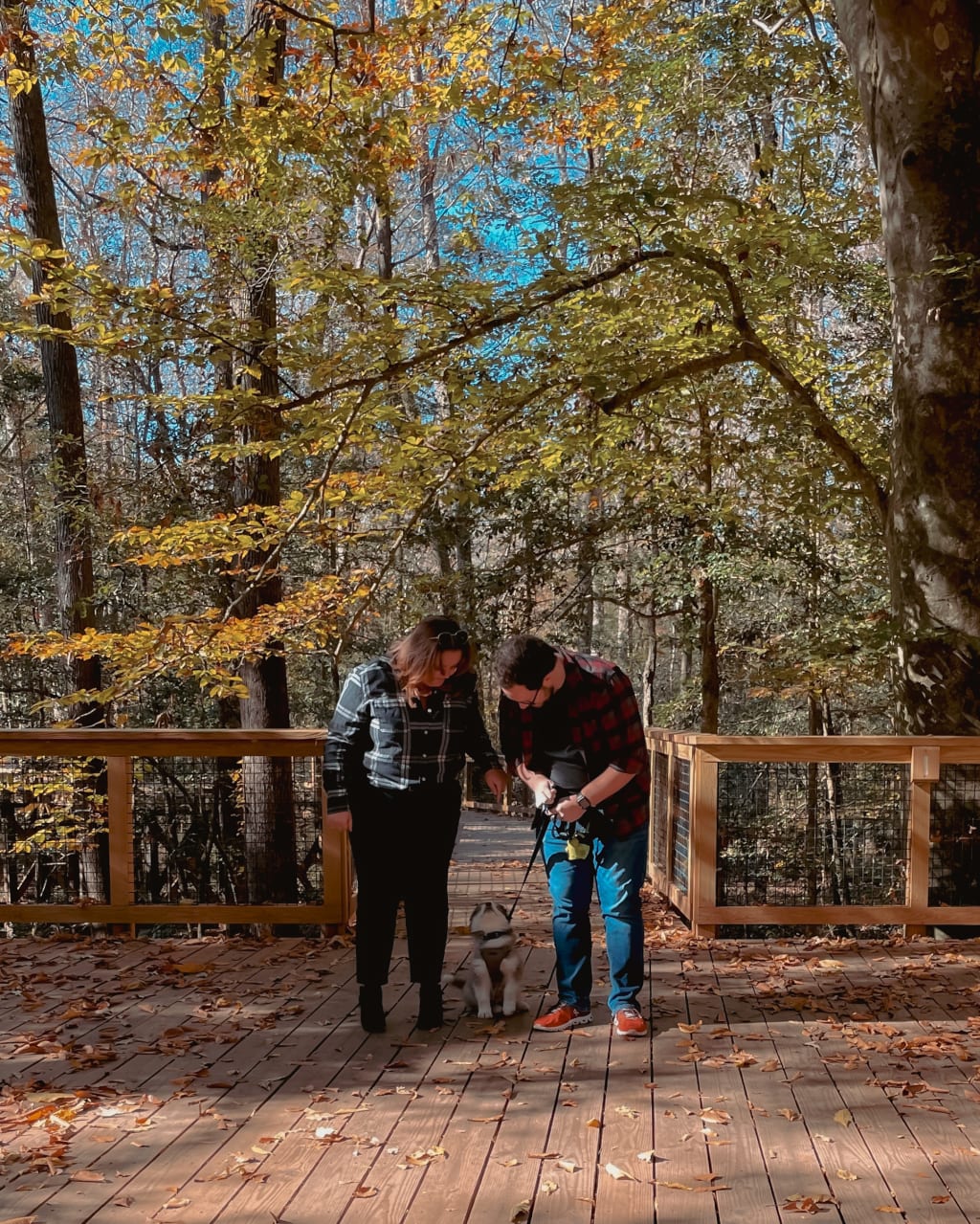The impossible task of raising a husky
Hiccup and the hurdle of expectations

When my my partner and I announced the arrival of our new family member most responses were positive but a few were, well, hesitant. Of all possible dog breeds, why would we choose a husky? They're known for being stubborn, talkative, and very high energy. The easiest answer was "we've both wanted a husky since we were children." My first Nintendog was a husky named Damon, which stood as evidence that our statement was true. The answer people understood less was "all of those things are exactly why we wanted a husky."
So begins my documentation of a very wild puppy, lovingly named Hiccup after a cartoon viking. I wanted to start this task with something general that I've already learned about adopting a husky puppy: leave all of your expectations at the door.
As a journalist, my favorite thing to do is research. In preparing to bring Hiccup home I read every article, book, and blog about huskies that I could find. I dove into guides about training and nutrition and then drove two hours to pick up our boy. I spent the ride home thinking about what to start with. I stressed about crate training and socialization and vet visits while the puppy slept on my lap.
I went into caring for Hiccup with tons of expectations about how he would learn and act.
In the first week home, I projected all of that stress and pressure directly onto Hiccup and immediately it seemed he was untrainable. We couldn't even get a solid hour of sleep. I wrote from home while missing the newsroom because he was so demanding. At the end of our first week with him, I had to take a step back to really look at the situation. Was Hiccup a bad dog or was I being a bad owner?
It's hard not to be demanding and expect a dog to be the perfect companion right away. Our expectations for man's best friend can be a barrier to really working with our pets. They can easily make us forget that our pets are communicating with us too, they have strengths they want to use and they want our respect just as much as we want theirs. Every pet is different and no amount of research can fully prepare us for what we're jumping into.
After stepping back I noticed small things about Hiccup like that he responds faster to physical cues and commands than he does to verbal commands, so I started incorporating different hand motions and signs into his training. After that, training became easier. Hiccup picked things up faster and retained them more easily. He stayed focused on me to look for the physical cues and had less trouble with distractions. Of course he still isn't perfect, but changing my expectations helped us become a more effective team and allowed us to communicate in a way we hadn't before.
From there, I started to look more at how he wanted to do things. How does Hiccup like to play? How does he like to be pet? What food does he like? What is his routine? Finally, how can all of this work with my life and what I'd like to see from him? It led me to the conclusion that I wasn't training a husky, I was training with a husky and there was a big difference between those two outlooks. I needed to learn flexibility as much as Hiccup needed to learn "leave it."
I'll come back to talk about enrichment, training, nutrition, and more with an edge of tips specifically for huskies who just keep surprising their owners.
So, this will serve as a kind of beginning and an introduction to an ongoing documentation about how I'm raising a husky puppy and how I'll be learning along the way. Half blogging and half journalism, some personal experience and some research, I'll keep chugging along.
About the Creator
Enjoyed the story? Support the Creator.
Subscribe for free to receive all their stories in your feed. You could also pledge your support or give them a one-off tip, letting them know you appreciate their work.






Comments
There are no comments for this story
Be the first to respond and start the conversation.